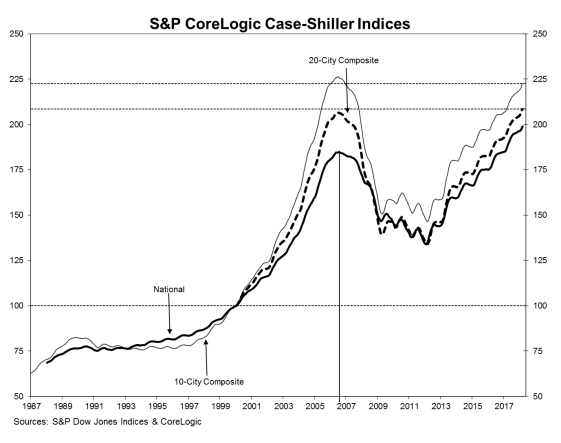The Hits Keep Coming for Deutsche Bank
Early today (Friday, June 1), Standard & Poor’s Ratings Services downgraded Deutsche Bank’s long-term credit rating one notch to BBB+, from A-, citing “execution risks” in a “deeper restructuring of the business model than we previously expected.”
Then there’s this headline, “Citigroup and Deutsche Bank are facing criminal charges in Australia following an investigation into their role in the sale of shares in one the country's top banks.”
Maybe this is just fake news. Deutsche Bank CEO Christian Sewing says everything is okay while admitting many workers at the bank are “sick and tired of bad news.” When a bank is circling the drain, CEOs always assure everyone that brighter days are ahead and day after day of bad news does get old.
At $11 a share the giant German bank is trading for roughly a quarter of the $40 plus the shares went for in 2013.
At the end of last year, Deutsche’s U.S. operations had $7.3 billion of equity supporting $148 billion of assets, or 20 to 1 leverage. Then there is the derivatives exposure of $50 trillion (with a T).
Fred Hickey tweeted, “DB has over $50 trillion derivative book. As Fed tightens, the weakest links crack. In banking world DB is the weakest link. Another Fed turn of the crank in 2 weeks?”
If that’s not bad enough, the Wall Street Journal reports of an “investigation concern[ing] whether Deutsche Bank and certain of its officers and/or directors have engaged in securities fraud or other unlawful business practices.”
The WSJ continues, “the U.S. Federal Reserve has designated Deutsche Bank's U.S. business to be in ‘troubled condition,’ citing concerns ‘about its controls around measuring financial exposure to clients and valuing collateral that backed loans.’"
And while normally the deposit insurer is tight-lipped about the names of institutions making its “troubled bank” list, in the case of Deutsche the May 31st WSJ reported,
The punitive action by the Fed, the bank’s primary U.S. regulator, has rippled through Deutsche Bank’s relationships with other regulators, including the U.S. Federal Deposit Insurance Corp., which has pressured the lender to improve controls and oversight, people familiar with those relationships said.
So the mystery jump in troubled bank assets reported by the FDIC I mentioned recently has been solved.
While CEO Sewing is sanguine, the credit default swap market sees trouble ahead. The annual cost of to protect €10 million of Deutsche Bank’s senior bonds against default over five years fell to $163,000, after closing at $189,000 yesterday, according to the WSJ citing information from IHS Markit. To put those numbers in context, and click on the red light and sirens, “The cost of the credit-default-swap spread had been as low as $63,000 in late January.”
So, the price to insure against a German mega-bank catastrophe has tripled in four months time.
Mr. Hickey’s tweet reminds us this is not just a Deutsche Bank problem. DB is the counterparty on $50 trillion worth of derivatives contracts. The other of sides of those trades likely aren’t as comfortable as Mr. Sewing. With 20 to 1 leverage, not much can go wrong before the doors are closed or, what is more likely, the government provides a helping hand.







